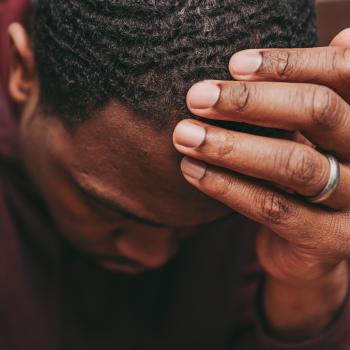It’s hard to pick your favorite books by a guy like C. S. Lewis. He’s become much more than just another author for me. After reading my first few Lewis books, I was, as my friend Steven Wedgeworth once put it, ready to learn at the feet of the master. He’s one of the great influences on my life. So when I say his novel “Perelandra” has had an outsized impact on me even for Lewis, you know I’m not kidding.
 As the second in his “Cosmic Trilogy” (I refuse to call it “The Space Trilogy”), “Perelandra” picks up the story of Dr. Elwin Ransom, a middle-aged English philologist who, in the first book, was drawn into an interplanetary war against spiritual evil. The second adventure takes him to Venus, where he must defend a fledgling race against a tempter who seeks to corrupt them as the Serpent corrupted Adam and Eve.
As the second in his “Cosmic Trilogy” (I refuse to call it “The Space Trilogy”), “Perelandra” picks up the story of Dr. Elwin Ransom, a middle-aged English philologist who, in the first book, was drawn into an interplanetary war against spiritual evil. The second adventure takes him to Venus, where he must defend a fledgling race against a tempter who seeks to corrupt them as the Serpent corrupted Adam and Eve.
The test the Green Lord and Lady of Venus must endure is not a forbidden tree, but a forbidden island—a “fixed land” on which they must not spend the night. The rest of the planet being covered in a hospitable ocean and drifting “islands” thick with fruit, this command is not burdensome. And when (thanks to the courage of Dr. Ransom) the first mother and father of Perelandra pass their test, they are coronated as king and queen of their world, which they will rule forever from the Fixed Land.
This resonates with Lewis’ theology of sin and temptation as a whole. ELSEWHERE HE OBSERVES that sin consists chiefly in taking good fruit at the wrong time or in the wrong way. Sex is good, seeking it outside of the marriage bed (at the wrong time) is disordered and destructive. Wine is good, but imbibing too much of it (in the wrong way) is disordered and destructive. Wanting people to think well of you is good, but lying by inflating your resume is disordered and destructive.
Considered in this light, sin becomes a non-entity, a moral mutation, a loss of order, or a “privation” as St. Augustine would put it. It has no existence. It merely twists and ruins God’s good world and good creatures.
Yet this conception of sin also has some tantalizing implications. For instance, what if Adam and Eve had passed their test of allegiance to God and turned down the Serpent’s offer of wisdom? What if they had preserved the sacred prohibition on the Tree of the Knowledge of Good and Evil in obedience to their Creator? If the tree itself was good, what was it for?
One of my recent guests on Upstream, Alastair Roberts, believes the first man and woman would have been allowed to eat of the tree once they had demonstrated their obedience. Based on a thorough wide-ranging reading of the themes in Scripture, Alastair argues that the primal state of man in the Garden was never intended to last forever, even had he passed his test. Thrones were reserved for Adam and Eve, and gold and jewels laid up in the ground nearby for their crowns (Gen. 2:12). They were intended to rule the earth under God, being like Him in “knowing good and evil,” a concept Alastair says is associated throughout the Bible with kingship.
All of this involves a morally favorable view of “the knowledge of good and evil.” This tree, whose fruit was “good for making one wise,” was truly good. The sin of the first couple consisted not in eating the fruit, per se, in but in stealing the fruit—in seizing knowledge in the wrong way and at the wrong time, against God’s express command. In this way, theirs was the precursor of all sin, in which we seize what is pleasant to the eyes, palette, or ego in a way that circumvents or flouts God’s rules.
It’s a fascinating and theologically rich way of looking at not only the Genesis account, but Jesus’ own temptation. It also points toward what may be in store for those who, in Him, are restored to God’s vocation for the human race.
But not everyone agrees with it. Alongside Alastair, I invited Dr. Owen Anderson, a Christian philosopher with astonishing credentials, to offer a somewhat different perspective on the meaning of “the knowledge of good and evil” and the narrative of the fall. The conversation the three of us had was incredibly rich and informative. In the words of Lewis’ Green Lady of Venus, it “made me older.” And I’m grateful to both men for participating.
I hope you’ll check it out, and I hope it helps you swim “upstream” on the topic of sin, temptation, and the gifts the New Adam offers all of those whom He purchased out of the fall with His blood.












